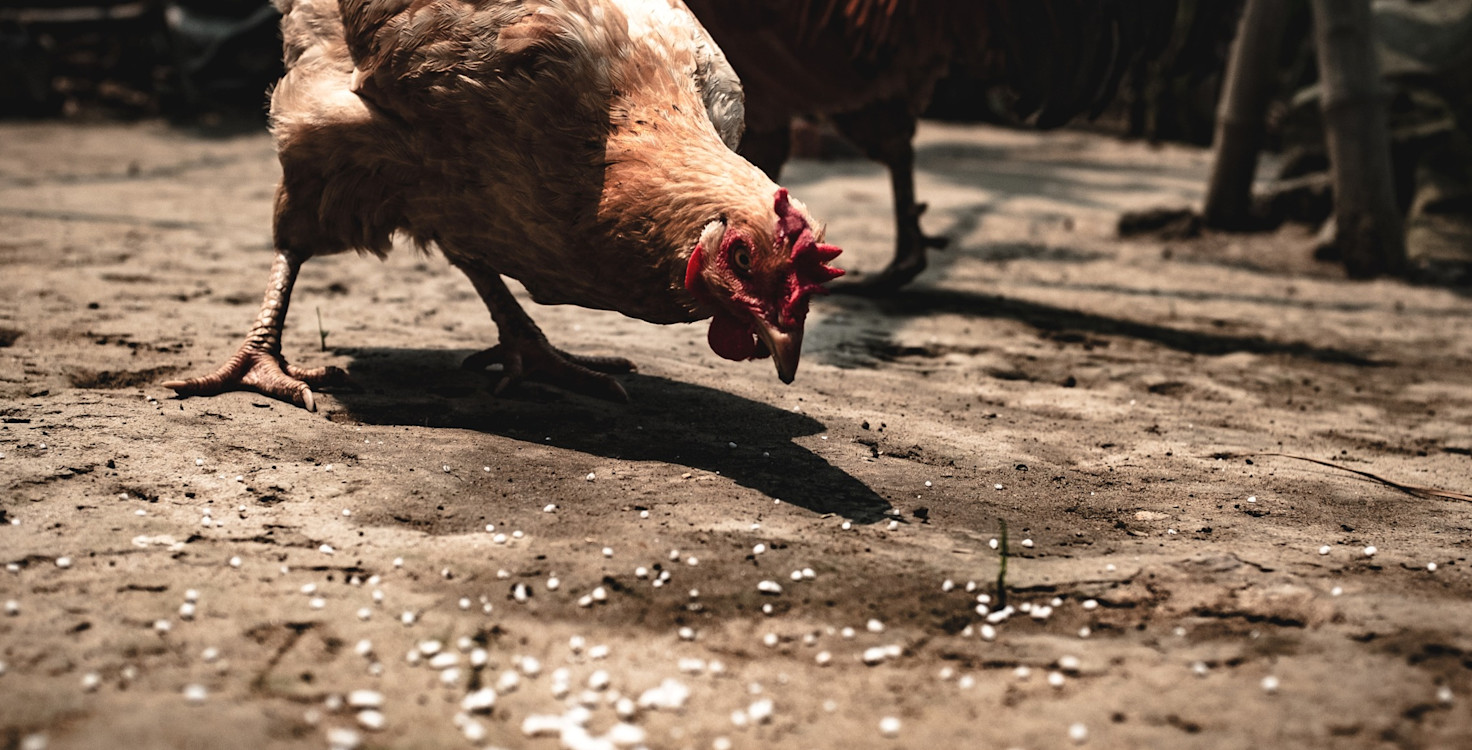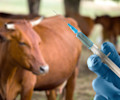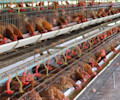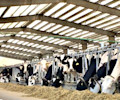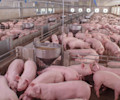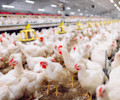To download this press release, click here
$2.3 trillion investor group urge companies to adopt comprehensive new policy to phase out routine use of antibiotics on healthy livestock
New benchmark analysis shows regulators in US and Canada well behind Europe in action to tackle antibiotic resistance threat.
In the absence of policy action, a group of 62 investors managing $2.3 trillion of assets are urging food companies to adopt a new best practice policy to reduce antibiotic use. Supporting investors include Aegon and University of California Office of the Chief Investment Officer of the Regents
US brands McDonalds, Wendy’s and Yum Brands! make progress but commitments yet to move beyond poultry to other farmed species. Four UK companies among those praised for comprehensive policies to reduce antibiotic use across all species.
(London, 15 November 2017). New investor analysis today highlights a growing policy gap between the US and Europe on action to reduce antibiotic use in livestock – seen as one of the biggest drivers of antibiotic resistance. A group of 62 concerned investors have backed a new statement urging companies to act to close this policy gap.
Antibiotic resistance is one of the world’s biggest public health threats, reported to kill 700,000 people each year; with overuse of antibiotics in livestock production recognised by the World Health Organization (WHO) as an important factor in its emergence.
Today’s analysis from investor network FAIRR shows that US and Canadian regulation is failing to keep pace with countries such as Germany, Netherlands and Denmark. For example, an EU-wide ban is in place to stop factory farms routinely administering antibiotics to healthy animals without prescriptions or to boost growth – however only limited restrictions or a voluntary ban is in place in the US in these areas. FAIRR’s findings suggest new, voluntary, US FDA guidance introduced this year is too weak to be having an impact.
This has seen UK companies pull ahead in the phasing out the routine ‘non-therapeutic’ use of antibiotics on livestock, seen as a key driver of antibiotic resistance. For example, since a FAIRR investor engagement launched in 2016, four UK companies – The Restaurant Group, Greene King, Whitbread and Domino’s Pizza Group UK – have committed to phase out routine antibiotics on all livestock species. In comparison, US firms Brinker International and Bloomin’ Brands called out for weak policies and a failure to respond to investors.
Jagdeep Singh Bachher, University of California Office of the Chief Investment Officer of the Regents said,
“The global regulatory landscape is moving to phase out routine non-therapeutic use of antibiotics on livestock and we need all food companies, especially those in the US, to move further and faster on this issue. Antibiotic resistance is a rapidly emerging risk that could spell the end of modern medicine, and that is an enormous material threat to the global economy. The market cannot afford to see key sectors from big pharma to big farms infected by antibiotics risk.”
Jeremy Coller, CIO of Coller Capital and Founder of the FAIRR Initiative said,
“Investors are fired up on this issue. The rise of tiny antibiotic-resistant superbugs poses a colossal threat to both human health and the global economy. Big restaurant chains are in the eye of the storm and while investors are pleased by the growing number of commitments to responsible use of antibiotics, the magnitude of the risk demands swifter and deeper action. The clear message from this investor engagement is that we shouldn’t count our chickens only… producers of beef, pork and other livestock species also need to phase out the use of antibiotics critical to human medicine.
“Today’s release of an off-the-shelf best practice policy on antibiotics use means there is no excuse for companies not to begin the transition to a sustainable livestock sector that supports the global response to the threat of antibiotic resistance.”
In the absence of policy, US investors have moved to take action with 30 US-based investors or finance-related bodies joining a global investor push to urge companies to adopt a comprehensive new policy to phase out the routine non-therapeutic use of antibiotics on livestock. FAIRR has developed a guidance policy for companies, with input from widely-recognised global experts, and made it freely available to help companies develop their own individual policies. The global investor statement on antibiotic use has been signed by 62 investors managing $2.3 trillion of assets under management.
FAIRR’s benchmarks on country and corporate progress on antibiotics are published today in the report, ‘Responding to Resistance’. The report provides an 18-month progress report on a high-profile investor engagement led by FAIRR to ask 20 large food companies to end the non-therapeutic use of antibiotics important to human health in their global meat and poultry supply chains.
The report and investor statement are published during Antibiotics Awareness Week, an initiative co-ordinated by the World Health Organization.
Ends
Notes to editor
For more information or for exclusive interviews with Maria Lettini, Director of FAIRR, please contact:
Yasmine Svan, ESG Communications,<br />t: + 44 (0)7598 148296 | e: yasmine@esgcomms.com; or
Full copies of the report ‘Responding to Resistance’ available at: www.fairr.org
The 20 companies engaged by the FAIRR antibiotics initiative are: Bloomin’ Brands; Brinker International; The Cheesecake Factory; Darden Restaurants; Denny’s; DineEquity<br />Domino’s Pizza Group (UK); Greene King; Marston’s PLC; McDonald’s; Mitchells & Butlers; Papa Johns; Restaurant Brands International; Sonic Corporation; Texas Roadhouse; The Restaurant Group; The Wendy’s Company; JD Wetherspoon; Whitbread plc; Yum! Brands
Investors supporting the statement include: Aegon NV; Aviva Investors; Robeco; Natixis Asset Management; Addenda Capital; CANDRIAM Investors Group; ACTIAM; Mirova; University of California Office of the Chief Investment Officer of the Regents; Fidante Partners; Raiffeisen Capital Management; Strathclyde Pension Fund; Calvert Research and Management; Dana Investment Advisors; Hermes Investment Management;Impax Asset Management; NEI Investments; Öhman; EdenTree Investment Management; Solaris Investment Management; Trillium Asset Management; Boston Common Asset Management; Australian Ethical Investment; The Sustainability Group of Loring, Wolcott & Coolidge; Bridges Fund Management; UFCW Pension Plan for Employees; Domini Impact Investments LLC; Everence and the Praxis Mutual Funds; Church of Sweden; Central Finance Board of the Methodist Church and Epworth Investment Management; Zevin Asset Management; Azzad Asset Management; Green Century Capital Management; Friends Fiduciary Corporation; Sonen Capital; Sisters of St. Francis of Philadelphia; Mennonite Education Agency; Civic Capital Group, LLC; WHEB Asset Management; Quantum Financial Planning LLC; Cruelty Free Super; Starboard Wealth Planners; Miller/Howard Investments, Inc.; EBG Investment Solutions AG; Confrapar Administração de Recursos s/a; Trinity Health Inc.; The LankellyChase Foundation; Congregation of St. Basil; Middletown Works Health Care VEBA; As You Sow; Dalhousie University; JLens Investor Network; JMG Foundation; Northwest Coalition for Responsible Investment; Seventh Generation Interfaith Inc.; Socially Responsible Investment Coalition; Shareholder Association for Research and Education; Trilogy Global Advisors; Triodos Investment Management; Coller Capital
FAIRR assessed national polices to restrict antibiotic use in livestock production against four criteria. The results from the US and Europe include:
1 =ban<br />0.5** = restrictions on use<br />0 = no ban
Unprescribed use
Antibiotic growth promotion
Antibiotic routine administration/ prophylaxis
Forecast Use 2030*** tonnes (+%Growth)
Netherlands
1
1
0.5
225 (+4%)
Germany
1
1
0.5
1527 (+5%)
Norway
1
1
0.5
7 (+22%)
Denmark
1
1
1
108 (+5%)
United Kingdom
1
1
0
422 (+5%)
EU [commission level]
1
1
0
N/A
US [federal level]
0.5
1*
0
9476 (+22%)
About FAIRR
The FAIRR (Farm Animal Investment Risk & Return) investor network is a Coller Initiative. It is a collaborative forum for investors that aims to raise awareness of the material impacts factory farming and poor animal welfare can have on investment portfolios, and works to help investors share knowledge and form collaborative engagements on these issues. www.fairr.org
